Search Results
Showing results 621 to 640 of 1648
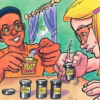
A Feast for Yeast
Source Institutions
In this activity on page 6 of the PDF (Get Cooking With Chemistry), learners investigate yeast. Learners prepare an experiment to observe what yeast cells like to eat.
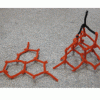
Carbon Configurations
Source Institutions
In this activity, learners use geometry to predict the shape of carbon. Learners twist and attach chenille stem pieces that represent bonds between different carbon atoms.
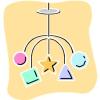
Make a Mobile!
Source Institutions
In this activity, learners make mobiles to explore the concepts of balance, counterbalance, weight, and counterweight.

Scale Model of Sun and Earth
Source Institutions
In this activity, learners explore the relative size of the Sun and Earth as well as the distance between them.

Hot Stuff!: Investigation #2
Learners test two jars containing hot water, one covered with plastic and one open, for changes in temperature.
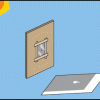
Finding the Size of the Sun and Moon
Source Institutions
In this activity, learners build a simple pinhole viewer. They use this apparatus to project images from a variety of light sources, including a candle, the Sun, and the Moon.
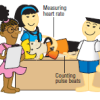
Changing Body Positions: How Does the Circulatory System Adjust?
Source Institutions
In this activity about how the body regulates blood pressure (page 117 of the PDF), learners make and compare measurements of heart rate and blood pressure from three body positions: sitting, standing
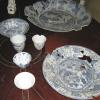
Treasures in the Rough
Source Institutions
In this archaeology activity, learners make observations and conduct an experiment to demonstrate the effect saltwater has on artifacts.
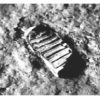
Regolith Formation
Source Institutions
In this three-part activity, learners use food to determine the effects of wind, sandblasting and water on regolith (dust) formation and deposition on Earth.
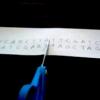
DNA Fingerprinting
Source Institutions
In this forensics activity, learners solve a mystery using “DNA” taken from the scene of the crime.

Disappearing Statues
Source Institutions
In this activity (on page 8), learners model how marble statues and buildings are affected by acid rain.
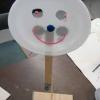
Bobbing Eyeballs
Source Institutions
In this activity, learners use simple materials and basic tools to construct a special toy to explore pendulums. As the head of the toy bobs one way, the eyeballs bob the other way.
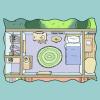
Map Your World
Source Institutions
In this activity, learners map their world by drawing a plan of their bedroom.
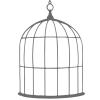
Bird in the Cage
Source Institutions
In this activity about afterimages, learners explore what happens when receptor cells called cones in your eye's retina get tired.
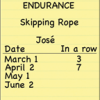
Endurance: How Many Can You Do in a Row?
Source Institutions
Combine math and exercise with this activity. Learners count how many times in a row they can skip rope or throw and catch a ball.
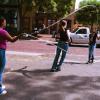
Twirling Rope Frequency
Source Institutions
In this activity (page 1 of the PDF under SciGirls Activity: Double Dutch), learners will stand twelve feet apart swinging a rope at the slowest tempo possible while someone uses a stopwatch to record
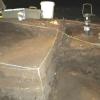
Looking Back Through Time
Source Institutions
In this activity, learners create their own archaeological profiles.
The Drake Equation
Source Institutions
In this math activity, based on the research of famed astronomer Frank Drake, learners calculate the possibilities of finding intelligent life elsewhere in the universe besides Earth.
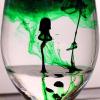
Floating and Falling Flows
Learners create beautiful fluid motion. They explore fluid dynamics, surface tension, solubility, and buoyancy while mixing liquids together.

Cable Car
Source Institutions
In this activity, learners string a line across the room and build cable cars that can move from on end to the other.
